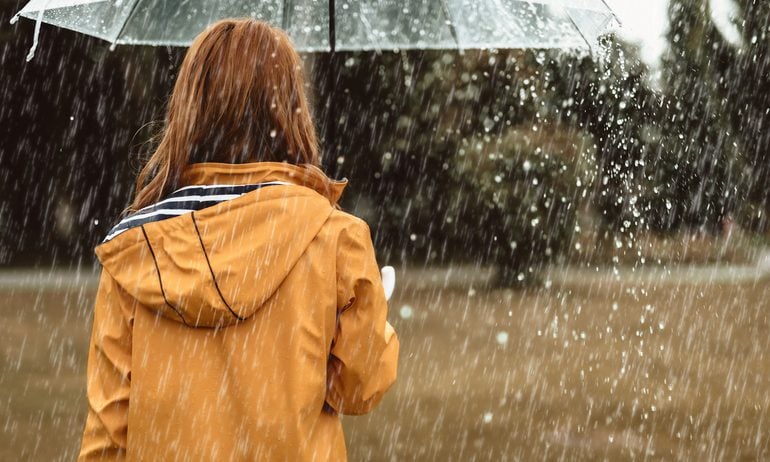No Flood Insurance? Here’s How to Get Help
You may be able to get flood damage help from the federal government or other sources.

Many, or all, of the products featured on this page are from our advertising partners who compensate us when you take certain actions on our website or click to take an action on their website. However, this does not influence our evaluations. Our opinions are our own. Here is a list of our partners and here's how we make money.
Disaster assistance may be available in the form of federal grants and disaster loans.
State and local agencies and nonprofit organizations may also be able to help.
Call 211 to be connected with disaster recovery services in your area.
If a flood wrecks your house and belongings, and you don’t have flood insurance, you may feel as though you’ve lost everything. But once the floodwaters recede, help is available to get you back on your feet.
Your first step: Check your insurance. Although your homeowners policy likely won’t cover flood damage, your auto policy might. If a flood damages or destroys your vehicle, it’ll likely be covered — minus your deductible — as long as you have comprehensive coverage on your auto policy.
Some homeowners policies may cover expenses associated with mandatory evacuation orders in certain circumstances. If you had to pay for a hotel or meals while away from home, save your receipts and see if your insurer will reimburse you.
For help beyond what your insurer provides, turn to the following sources.
Get personalized quotes without the work
Let NerdWallet Insurance Experts compare quotes from popular carriers to find the right insurance coverage and rate for you. No guesswork — just expert, personalized help.
NerdWallet Insurance Experts, LLC is a wholly owned subsidiary of NerdWallet.
FEMA grants
You can apply for grants from the Federal Emergency Management Agency once the president declares your state a major disaster area and names your county for individual assistance. Enter your ZIP code here to see if your area is eligible.
FEMA’s Individuals and Households Program offers up to $43,600 per household for temporary housing, repairs and construction, plus up to an additional $43,600 for other post-disaster needs. The money can’t duplicate what insurance provides, but it can supplement it, and you don’t need to pay it back.
You can apply for FEMA grants to:
Rent a place to live if your home is uninhabitable. If no rental units are available, you can apply for temporary housing. The help is for up to three months initially, with a maximum of 18 months.
Repair damage or replace belongings insurance doesn't cover.
Help to pay other disaster-related expenses, such as funerals, medical and dental costs, and child care.
In rare cases, FEMA may pay to build permanent housing in locations where other alternatives aren’t feasible.
Federal grants are available for your primary home only, not for second homes. At least one person in your household must be a U.S. citizen or meet certain requirements for noncitizens. You may not be eligible for federal disaster assistance if you live in a Special Flood Hazard Area, have received past disaster aid for a flood at the same address and don't have flood insurance.
A Special Flood Hazard Area, as designated by FEMA, has at least a 1% chance of flooding in a given year. You can check your flood zone on the FEMA website.
To check eligibility and apply for a grant, visit DisasterAssistance.gov.
SBA disaster loans
If you need more assistance than FEMA grants can provide, consider applying for a low-cost loan through the Small Business Administration. You don’t have to own a business to qualify.
The loans are for uninsured damage to your primary home only. Terms are for up to 30 years, with a maximum interest rate of 4% if you can’t get credit from another lender. Here are the loans available, along with some of the restrictions:
Up to $500,000 to repair or replace your primary home. You can’t use the loan to make upgrades or additions unless building codes require them or they’ll help protect the property from a similar disaster in the future. You may be able to use an SBA loan to refinance all or part of a previous mortgage if your home suffered major damage and you don’t have access to credit elsewhere.
Up to $100,000 to replace damaged belongings. These may include clothing, furniture and appliances. These loans are available for renters and homeowners.
You can apply for an SBA loan online, by mail or in person at a FEMA Disaster Recovery Center.
As with FEMA grants, you may not be eligible for an SBA loan if you live in a Special Flood Hazard Area, have received past disaster aid for a flood at the same address and don't have flood insurance.
State, county and local government services
If you need help, don’t limit yourself to federal aid. Survivors can reach out to their local emergency management departments to find more information about flood damage assistance.
Local governments may be able to point you to shelters, provide disaster unemployment assistance and help with applications for federal aid.
Nonprofit organizations
Nonprofit organizations spring into action in the aftermath of a flood. One of the best-known is the American Red Cross, which offers a variety of services including:
Shelter.
Meals.
Cleanup supplies.
Medical care.
Emotional support.
One-on-one assistance with recovery planning.
The Red Cross sometimes also provides direct financial support to help survivors replace damaged belongings, put a deposit down on a new apartment or handle other pressing expenses. Such support generally goes to the most vulnerable survivors of each disaster.
Local chapters of United Way may be able to connect you with relief services and even help with mortgage or rent payments if you’ve lost income in the disaster.
If you’re not sure where to turn for help, call 211 or visit 211.org to find services in your area.





